A personal reflection from James Kell, Founder of Sailing Virgins
When I heard that Offshore Sailing School had filed for bankruptcy after 60 years in business, I felt a genuine pang of sadness. This wasn't just any sailing school closing its doors—this was the institution that Steve and Doris Colgate built from scratch, trained over 160,000 sailors, and quite literally wrote the book on sailing education in America.
I'll be honest: when we started Sailing Virgins back in 2016, Offshore was one of the schools we studied closely. They were the gold standard, the benchmark, the ones who'd figured out how to turn sailing instruction into a proper business. In many ways, they paved the road that allowed schools like ours to exist.
What Offshore Did Brilliantly
Two things needs to be said: the Colgates were pioneers, and they got so much right. Their instructors were exceptional—some of the best in the business. When you talked to an Offshore graduate, they'd rave about how knowledgeable, patient, and professional their instructor was. Steve Colgate personally trained and certified every single one, and it showed.
They also understood that sailing education needed structure. While other schools were winging it, Offshore developed comprehensive curricula, proper certification pathways, and even designed their own training vessel—the Colgate 26. They turned what could have been a hobby business into a proper educational institution.
Perhaps most importantly, they made sailing accessible to thousands of Americans who might never have stepped foot on a boat otherwise. They partnered with resorts, created family packages, and marketed sailing as something anyone could learn. That's a massive contribution to our sport.
Where the Winds Shifted
But here's where things get interesting, and where our paths diverged. When I was researching the sailing school landscape, I noticed something at Offshore that didn't sit right with me. The boats felt... well, a bit boring. Safe? Absolutely. Practical for teaching? Sure. But did they make you want to drop everything and sail around the world? Not really.
The Colgate 26, while brilliantly designed for instruction, looked like something your accountant uncle might charter for a gentle potter around the bay. Where was the adventure? Where was the sex appeal? Where was the thing that would make a 25-year-old say, "Hell yes, I want to learn this!"
This wasn't a small detail—it was fundamental. Offshore had built their brand around resort partnerships, classroom instruction, and a certain... formality. They were selling sailing education. We wanted to sell sailing adventures that happened to include world-class education.
The Perfect Storm
Hurricane Ian devastated their Fort Myers headquarters in 2022, destroying boats and facilities. COVID had already hammered the tourism industry. With the founders in their 80s, succession planning must have been challenging. These external factors would test any business, but I can't help wondering if there were deeper currents at play.
The sailing education market has changed dramatically. Today's students—especially younger ones—don't want to sit in a classroom learning about points of sail. They want to be on Instagram-worthy adventures, learning by doing, living the life they see in their feeds. They want experiences, not just certifications.
What This Means for Sailing Education
Running an adventure sailing school is bloody hard. Trust me, I know. You're dealing with weather, boats that break, instructor scheduling, customer expectations, and the constant challenge of making an inherently expensive activity accessible. The Colgates did it for six decades, and that deserves massive respect.
But their closure also signals something important: the old model of sailing education—classroom-heavy, resort-based, traditional—might be sailing into the sunset. The future belongs to schools that understand that modern students want immersion, adventure, and yes, a hefty dose of cool factor.
The Torch Passes
At Sailing Virgins, we've taken a different tack from day one. We put you on a boat with three or four other adventure-seekers and an instructor who's as likely to have sailed across an ocean as to have a teaching certificate. You live aboard for a week, sailing between islands, learning through doing, swimming over lunch, and yes, occasionally having a rum punch at sunset because that's part of the sailing life too.
Our boats? They're the ones that make you stop and stare in the marina. Our instructors? They're the ones with stories that'll keep you up all night. Our students? They're the ones who leave not just with certifications, but with a crew of new friends and an absolute certainty that sailing is the coolest thing they've ever done.
This isn't about being better than Offshore—it's about being different. They served their generation brilliantly. We're serving ours.
Respect Where Respect is Due
To Steve and Doris Colgate: thank you. Thank you for showing that sailing education could be a serious business. Thank you for training thousands of instructors who've gone on to spread the love of sailing worldwide. Thank you for proving that Americans would pay good money to learn to sail properly.
To my team at Sailing Virgins: you absolute legends. Every day, you prove that sailing education can be both rigorous and ridiculously fun. You've helped us build something that honours the past while charging full-speed toward the future.
The wind has shifted in our industry. Offshore Sailing School's closure marks the end of an era, but it's not the end of sailing education. If anything, it's a reminder that we need to keep evolving, keep pushing, and keep making sailing as exciting and accessible as possible.
Because at the end of the day, that's what this is all about: getting more people out on the water, feeling the wind in their hair, and discovering that sailing isn't just something you learn—it's a way of life.
Fair winds, Offshore. And to everyone else: come sail with us. The water's perfect, the boats are cool as hell, and the adventure of a lifetime is waiting.

